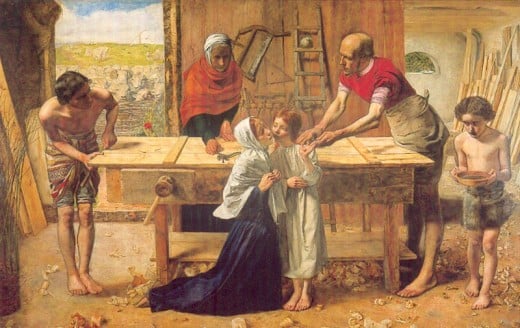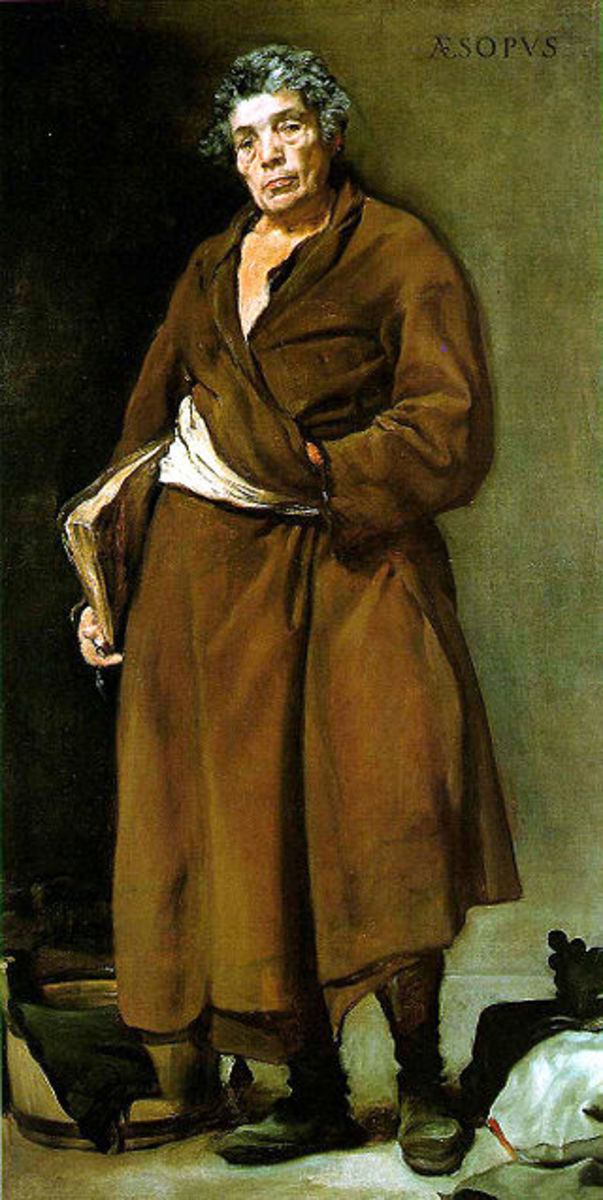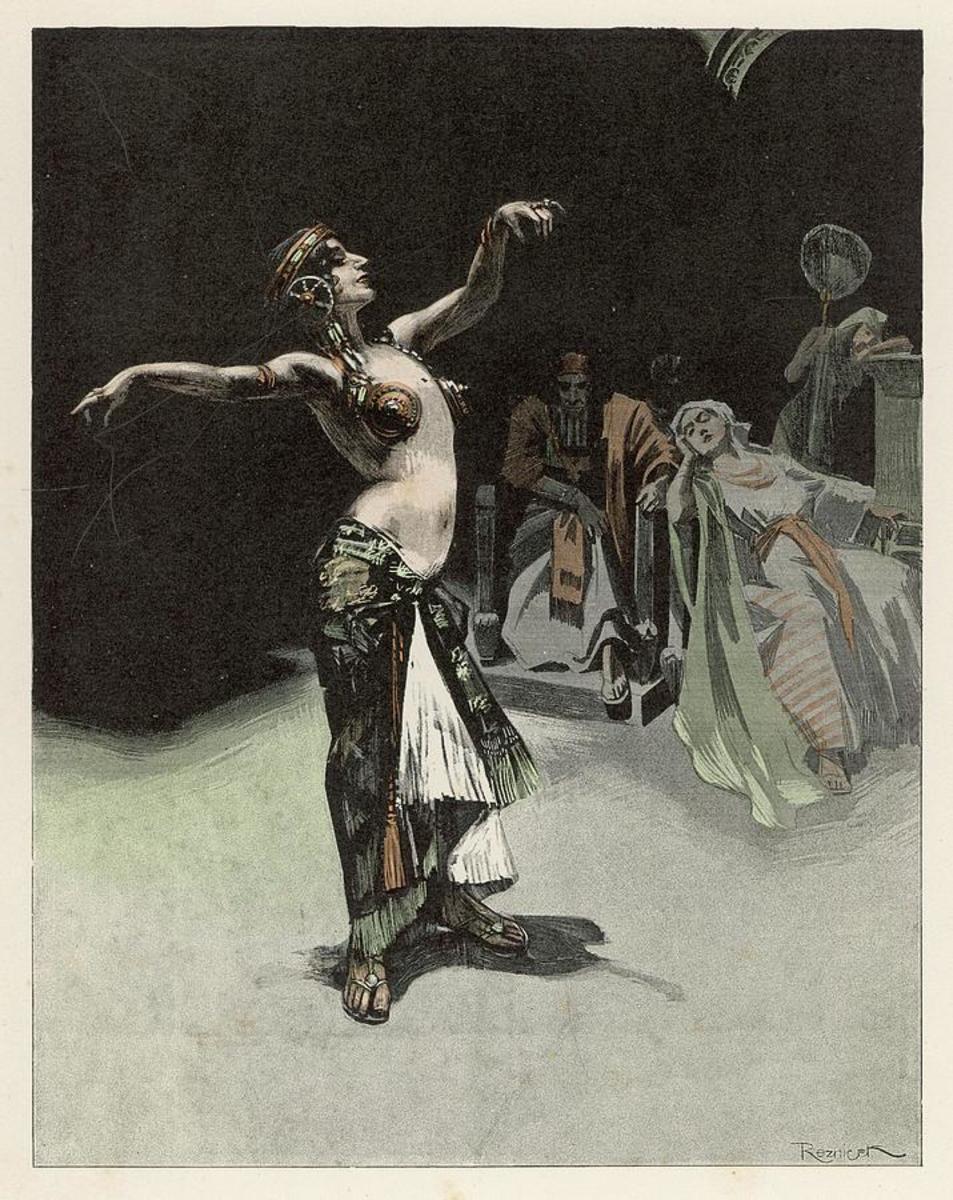The Three Temptations of Christ as Metaphor
In The New Testament, some stories are clearly labeled as parables; others are often read in a more literal way. However, I'd argue that much that is read as literal is parable too. Further, the final twist in the argument is to suggest that our understanding of reality is somewhat tenuous at the best; we learn many truths from stories and parables that are designed to explain and teach us important insights in an entertaining way. These often profound understandings are not dependent on whether they came about as a result of a parable or a true story.
Jesus has a great deal of insight into the power of metaphor and uses it frequently in his teaching and interaction with others. Often he uses a parable and shows how a fictional story can illustrate profound truth. Also it illustrates Christ's abilities as a teacher since successful teachers have long recognized the power of storytelling to convey important lessons. It's a practice used by Plato and other philosophers as well as holy men from many religions.
The Parable of the Good Samaritan, for instance, makes it clear that we should judge people by their actions rather than what they profess to believe. Further, the parable clearly speaks to the importance of practicing tolerance of other religions – something that was quite contrary to Jewish beliefs as it still is to many monotheistic religions. A parable is an extended metaphor that suggests how people should behave; it frequently facilitates the discussion of complex ideas as the notion of religious tolerance would have appeared to the Jews of that time.
As a sometime student of literature I have an obvious bias since my belief has always been that there are often more truths to be found in a good work of fiction than in most autobiographies. The notion that the world itself should be viewed as a metaphor might be strange to many today but to the Medieval mind the world itself was seen as metaphor that always pointed to the ideal or God – almost identical to Plato's notion of the ideal.
Most of us were educated to believe in the idea that things are either true or aren't. (It's the right/wrong trap pointed to by many interested in teaching creative and critical thinking.) It's one of the many flaws in our education system, since there's a great deal we've learned about reality over the last few decades that has contradicted our previous notions of what is real.
Our direct senses and intuitive understanding of the world breaks down when viewed from the perspective of quantum, for instance. However, there's a great deal in the Bible that suggests the reader should view both the Bible as metaphor rather than an historic account. As metaphor, stories are forever young.

The foibles and failings of Aesop's creatures have allowed countless generations to learn important lessons about character and our place in the world. Stories are used to awaken understandings and truths, sometimes of the most profound kinds, in the minds of those who hear them. The notion that power itself rests in the words and stories of oral peoples is acknowledged by the many warnings given to the Jews to beware of false prophets.

It's difficult for today's reader to understand that acquiring knowledge and entertainment from a non oral tradition is relatively new. Books in English only ceased being handwritten in beautiful but painfully slow lettering when Caxton's printing press made its appearance less than six hundred years ago.
Some cultures still rely heavily on passing vast amounts of knowledge from generation to another through learning long stories and poems that are the culture's lifeblood. Some people who are called not literate have the equivalent to several large volumes of text memorized. So-called primitive and nomadic cultures often carry their people's knowledge around in their heads rather than in books. Of course, poetry and stories are ideal forms to store this type of knowledge. And, like all good educational material, these words have to be as entertaining as they are instructional.
Jesus was embedded in an oral tradition. Although the historical Jesus may have been literate; his parables are designed to awaken intuitive wisdom that is to be found in many places, including inside ourselves. The lessons, insights and truths of a culture, religion or the two combined still were preserved in minds that carried the stories. Indeed, all evidence suggest that it wasn't until at least a hundred years after the historical Jesus's death before there was any written account of his life. The stories of Jesus were kept alive as part of this oral tradition before being written down many years after his Crucifixion.


However, is there any evidence that can be drawn from the Bible itself that suggests some of the stories of Jesus himself are parables? It doesn't alter the truths that are to be drawn from the parable but has the advantage of providing theologians with a plethora of arguments to answer many of the most difficult criticisms that challenge the complete accuracy of The New Testament. In fact, I'd argue, many religious texts have remained contemporary because truths drawn from these stories don't have the same kind of build in obsolescence that accompanies most historical explanations of how things work.
Elsewhere I've argued that Christ's three temptations should be regarded as metaphorical. I now suggest that the story itself is akin to a parable. The parable is necessary to show that Christ was open to the full experience of being human – of being open to temptation. Christ and the Devil are the only witnesses to the temptations so how would the story be known to others?
Jesus would not have shared the story to emphasize his own virtue – that would be quite contrary to the character that's portrayed. It's unlikely that the Devil would have shared stories of his own defeat. There seems no explanation of how such a literal story of the temptations could have been known to any others than the two central characters. The central message or lesson is to show that Christ was fully human because he was open to the temptations but demonstrated the ideal or God by being able to withstand them. He is Adam reborn, Adam Redux as it were, because he is able to withstand even the greatest of temptations.
Joseph Campbell and others have argued persuasively that many myths carry profound truths and insights into the human condition. Campbell himself became a modern day prophet as he used the world's myths to share his spiritual insights.
Although it might seem unsettling or even insulting to suggest that much of the Bible should be regarded as metaphor, it's survived because the stories contain many truths that are universal rather than many stories that are true. To argue that the truths are dependent on the historical accuracy of many of these stories seems disingenuous since the Bible's most important insights and truths are not dependent on a literal reading.
The series of three articles began with asking: Is It Reasonable to Expect Christians to Practice What They Believe?; continues with the current article on metaphor; and ends arguing that Jesus's greatest contribution is to help us see that we are all connected rather than alone; and it is entitled: Love thy Neighbor: We are all Khaled Said.







